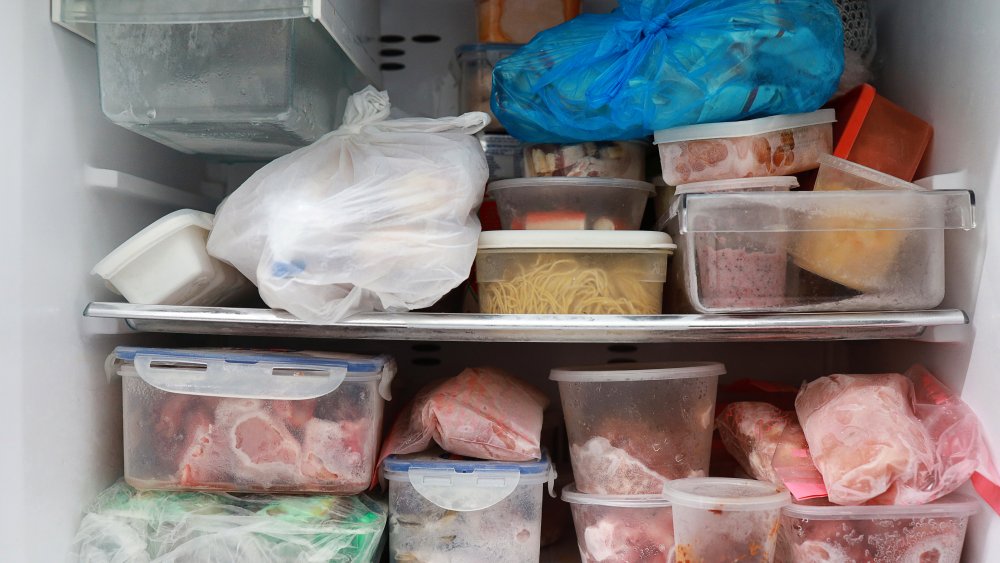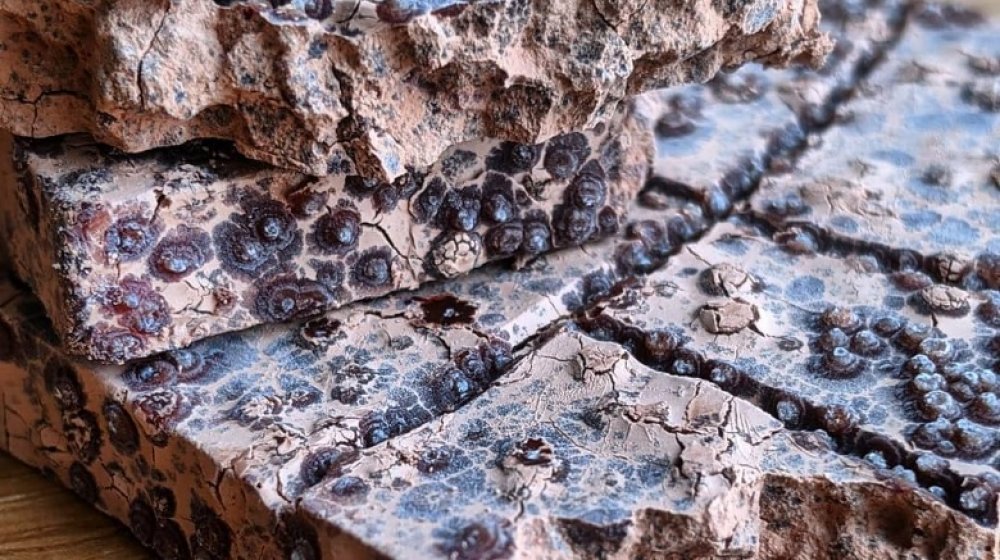The Surprising Thing You Should Never Put In Your Freezer
First the good news: Chocolate, like everybody whispered about back in 2017, probably isn't going to go extinct by 2050 due to climate change (via Snopes). Now the bad news: Scientists do think that increasing humidity in the cocoa-producing regions of West Africa, due to climate change, will "significantly reduce" the amount of lands that are suitable for cocoa farming (via Science Alert). "West Africa," you think, "why's that important?" To which we would respond that your favorite Nestle, Hershey, Lindt, and Godiva Chocolates may well be made of West African cocoa beans.
Finally, here's the worse news: You may be tempted, given the circumstance, to rush to the supermarket and begin stocking up on chocolate bars, chocolate chips, and other chocolate essentials in preparation for the Great Chocolate Shortage. We get it. Our collective obsession with everything chocolate is clearly in danger. By all means, start chocolate hoarding! Just don't store your chocolate reserves in the freezer. Ever. Here's why.
What happens to chocolate when you put it in the freezer
The Kitchn explains that chocolate, unfortunately, is not immune to changes in temperature and moisture. When the temperature inside your freezer fluctuates, moisture forms in between your chocolate and its wrapper. That, in turn, can cause freezer burn, which can alter your chocolate's texture and taste (via Library of Congress). Even if you're chocolate escapes, un-scalded, you're also likely to end up with chocolate bloom. That's when the cocoa butter in your chocolate rises to the surface, creating a cloudy, chalky, dull bar of chocolate, lacking the smooth, melt-in-your-mouth texture you crave. Can you still bake with it? Yes, suggests Serious Eats. Is it ideal for baking? Absolutely not.
Ideally, you should store your chocolate between 65 to 70 degrees Fahrenheit. But if that's impossible, or if you do feel the need to freeze it, minimize potential damages by thawing it gradually. Doing so will reduce the amount of moisture that will build up between the bar and the wrapper. Try transferring your chocolate from your freezer to the fridge, before removing it from refrigeration entirely. And, to slow the process down even further, when you do take your chocolate out of the fridge, wrap your (already wrapped) chocolate bar in a dish towel for a couple of hours, before unwrapping it.

